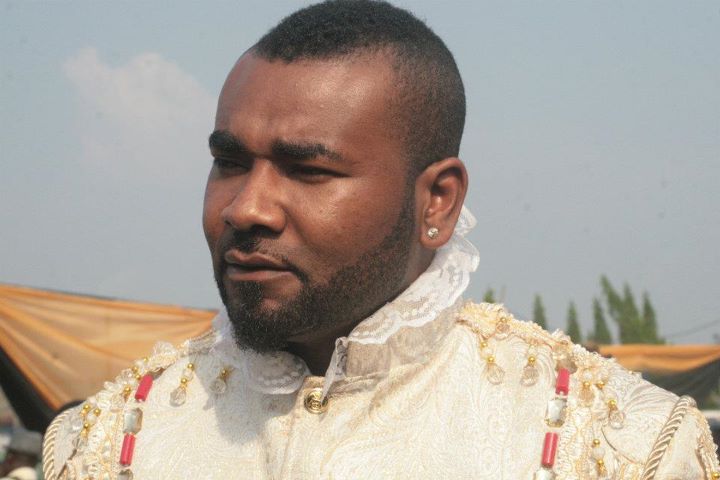Nollywood actor, Prince Eke has come out to blast those who criticize the government. He recently asked critics to look inward, and fans have been reacting.
According to him, it is strange how many who condemn the government actually do worse than those in government, and the fact is that the Nigerian government is basically a reflection of the society.

Prince added that the same citizens who complain about bad governance are the same ones who bribe their way through everything.
His words, “People often complain about bad governance, pointing fingers at corrupt leaders, ineficient systems, and poor decision-making. They blame politicians for the state of the nation, accusing them of greed, dishonesty, and a lack of vision. However, many of these same people, if given the opportunity, would act in even worse ways.
A society gets the leaders it deserves because governance is a reflection of the values of the people. The same citizens who complain about corruption are often the ones who bribe their way out of trouble, cut corners at work, cheat in business, and refuse to take responsibility for their actions. They condemn leaders
or mismanaging resources, yet they waste resources in their dally lives. They criticize politicians for being selfish, yet they put their personal interests above the common good whenever possible.
A businessman who evades taxes but complains about bad roads is no different from a corrupt leader who embezzles funds meant for infrastructure. A civil servant who takes bribes to speed up processes but complains about the government’s lack of transparency is part of the same system they condemn. Even in
simple daily activities, people show a disregard for order – breaking traffic rules, littering public spaces, or refusing to follow basic ethical principles.
The truth is governance is not just about those in power – it is about the collective mindset of the people. If citizens uphold dishonesty, mediocrity, and selfishness in their personal lives, how can they expect leaders to be different? Leadership emerges from the society it governs. If people truly desire good governance, they must first embody the principles they demand from their leaders-integrity, discipline, responsibility, and selfessness.
Before blaming the government for every failure, people must ask themselves: Are we any better?”
WOW.
Nollywood is a sobriquet that originally referred to the Nigerian film industry. The origin of the term dates back to the early 2000s, traced to an article in The New York Times. Due to the history of evolving meanings and contexts, there is no clear or agreed-upon definition for the term, which has made it a subject to several controversies.
The origin of the term “Nollywood” remains unclear; Jonathan Haynes traced the earliest usage of the word to a 2002 article by Matt Steinglass in the New York Times, where it was used to describe Nigerian cinema.
Charles Igwe noted that Norimitsu Onishi also used the name in a September 2002 article he wrote for the New York Times. The term continues to be used in the media to refer to the Nigerian film industry, with its definition later assumed to be a portmanteau of the words “Nigeria” and “Hollywood”, the American major film hub.
Film-making in Nigeria is divided largely along regional, and marginally ethnic and religious lines. Thus, there are distinct film industries – each seeking to portray the concern of the particular section and ethnicity it represents. However, there is the English-language film industry which is a melting pot for filmmaking and filmmakers from most of the regional industries.
Support InfoStride News' Credible Journalism: Only credible journalism can guarantee a fair, accountable and transparent society, including democracy and government. It involves a lot of efforts and money. We need your support. Click here to Donate
